
Andrew David Barker was born in Derby, England, in 1975. The Electric is his first novel, published in 2014 in a beautiful signed, illustrated limited edition hardcover of 150 copies from Boo Books. It is also available as an ebook, and a paperback will be released in the UK on 7 May. The novel is a ghost story steeped in a love of movies, especially genre flicks from the old Universal classics to The Texas Chainsaw Massacre and Jaws. It is also a nostalgic, bittersweet coming of age story, a resonant, evocative, deeply moving tale with shades of vintage Bradbury and King. It is quite an achievement.
*
Gary Dalkin for Amazing Stories: Andrew David Barker, welcome to Amazing Stories. You’ve directed a film, the ‘lost’ A Reckoning, about which more later, and I’ve read that you’ve worked on screenplays for other directors. And now you’ve written a very well received novel which is suffused with our collective love of cinema, especially genre film. So as someone clearly steeped in movies, how would you pitch The Electric to readers of Amazing Stories?
Andrew David Barker: Set in the late summer of 1985, fifteen year old Sam Crowhurst discovers a long abandoned cinema out on the outskirts of his town. But the Electric is a cinema like no other. The old picture house does still screen movies, but these movies, Sam and his friends come to learn, are movies made by ghosts, for ghosts.
I’ve been borderline obsessed with movies my entire life and I guess this novel is my love letter to cinema. That said, it is also very much a novel about childhood, and about how it slips away from us. Everything in this book is decaying in some form or another.
AS: It is certainly a book filled with decay, from the Electric cinema, to, a dilapidated old house and a car breaker’s yard. And yet I didn’t find the novel depressing. Equally, though The Electric is filled with ghosts, it is not especially frightening as a ghost story, nor does it set out to be. Again, it is a book with three teenagers at its centre, but it is not a YA novel, though there is nothing in it unsuitable for a teenage reader. It is, as you say, a novel about childhood, but childhood on the edge of that bittersweet transition to adulthood. As such, and given also that the novel deals with bereavement, ghosts seem entirely appropriate. Could you elaborate a little on the idea the quite unusual presentation of ghosts and the supernatural in the book?
ADB: I wanted to try and approach the idea of a ghost a little differently. I also knew I wanted a positive depiction of the supernatural, if bittersweet. The ghosts are solid entities, sparking and shifting with colours. To the young protagonists of the novel they are often too much to look upon, at least at first. This idea came quite instinctively when I began working on the book.
There was also something else I was trying to grasp at – some connection between the ghosts and film itself. Celluloid captures ghosts in waiting. We’ve had the miracle of film for, what… a hundred and twenty… a hundred and thirty years? A small pocket of time really, but in that time, millions of lives have been captured, all telling the stories and myths of the ages. There is something supernatural about cinema.
AS: It reminds me of something Christopher Nolan wrote in the issue of Wired magazine he edited last year: ‘If you’ve ever been in the booth when film spills off the reel and onto the floor while the movie is running, you have a very tactile idea of the relentless and frightening passage of time by which we all live.’ If celluloid captures ghosts in waiting, then the ghosts of famous filmmakers in The Electric feel that pressure of time, that their work isn’t finished yet, and just because they are dead that’s no reason they should stop making films. There’s a lovely idea of Charles Dickens having written an amazing script, so good the dead are waiting for David Lean to pass so that he can direct it. I’m wondering how you decided on the particular old film stars to feature – are you personally a big Bogart fan? – and what films they might have made in the afterlife; you must have had fun imagining movies like A Murder of Crows and Houses of The Hanged?

ADB: Great Nolan quote. Well first off, I absolutely believe that, had he lived to see the birth of cinema, Dickens would have almost certainly embraced it. He loved acting, and directing, and did so in many many plays. He was also an incredibly cinematic writer, of course. The first chapter of Bleak House, I can almost see the camera moving through that dense, dense London fog.
As for the other famous people in the novel, I am just a fan of most, if not all of them. I love Bogart. I love John Belushi, Bela Lugosi… so many. What I wanted to try and avoid, with the exception of Bogart, is that I haven’t really used any of the traditional Hollywood icons. There’s no Marilyn, James Dean… I’m a fan of those artists, but they’re just done all the time. I doubt there are too many novels out there at the moment featuring James Finlayson and Will Hay! Or ever.
I had a great time creating the films the Electric shows. The wonderful thing about this premise is that I could use ideas I’ve had for movies and put whoever I wanted in them. Plus, I got to play in a bigger sandpit. This novel is pretty much a human drama, but within it I’ve got to write fantasies, and horror films, gangster pictures and slapstick comedies. I’d say my favourite films in The Electric are A Murder of Crows, my horror film starring Theda Bara, Lon Chaney, Peter Lorre and Karloff and Lugosi, and Mad Dogs, my supernatural comedy starring Harold Lloyd and John Belushi. I had to restrain myself from writing more and more films in the book.
AS: Absolutely right about Dickens. Finlayson was great, and even if people don’t know him by name they’ve surely seen him in the classic Laurel and Hardy movies. Will Hay of course has form, starring in The Ghosts of St. Michael’s. But you did restrain yourself from writing more and more? – because one of the things that makes The Electric so effective is that not everything is explained. The novel develops quite a complex mythology around filmmaking in the afterlife, then leaves some intriguing questions with hints of a darker side – the town in the desert which Sam is told he never wants to go to – which are quite chilling. Were you at any point tempted to explore those areas more, taking the novel into full on horror?

ADB: No, I was never really tempted to go too far down that road, but there is a dark undercurrent running through the book – certainly surrounding the character of Seymour Janks – and I enjoyed that element.
Having said that though, my first attempt at writing The Electric was as more of a horror novel. It began life as a completely different version – it was contemporary, set in L.A., with adult characters, who discover the cinema in a ghost town out in the Mojave desert. I wrote about 26,000 words of that version, and some if it I thought was pretty good, but somewhere along the line I realised I wanted to write more of a personal novel. Some of those places and ideas are still hinted at in the final version.
AS: Which brings me to the obvious question, how personal is The Electric? You were born in 1975, so you weren’t 15 in the summer of 1985 … on the other hand, a lot of what Sam experiences is pretty universal …
ADB: Yeah, I was only ten in 1985, but that year is still very clear to me. Knowing I wanted to set it in the eighties, I quite simply set it smack in the middle of the decade.
I’m a very nostalgic person – always have been, and the older I get, the more intense it becomes. I have a distinct sense of time passing.
Anyway, The Electric is personal in that it is set in a time and place that I lived, albeit heavily fictionalised. There are a great many names and places from my own childhood in the book. But it’s more than that. In writing it in first person, from the viewpoint of a man looking back, I found I could give the book a pure voice. A voice true to me. Truer than anything I’d written before. My L.A. version was too disconnected. It wasn’t me. This novel is me.
The Electric is about loss – all kinds of loss, and that is universal to us all.
AS: You mentioning the viewpoint of a man looking back brings me to something else I wanted to ask. I’m not the first reader to notice there are parallels between The Electric and Stephen King’s The Body, which was published in 1982 and filmed as Stand By Me in 1986, basically the same period as that over which The Electric takes place, and which has a successful middle-aged man looking back nostalgically on key events involving a small group of friends over a few days one hot summer in his teenage years. King’s story even features a junkyard and an older bully. I’m guessing you’re a King fan – there are little hints of the Dark Tower novels and The Talisman in The Electric as well – but were you even aware of these parallels when you were writing? The stories are in so many other respects completely different. There’s certainly no sense that you were consciously or deliberately imitating King. The novel very much has its own voice, so really I’m wondering about your influences.
ADB: Yes, I can’t deny it, I am a huge King fan. I do love The Body and the film – Stand By Me was a very important film to me, and my mates, when we were kids. I’ve always been drawn to his more nostalgic and reflective work – The Dead Zone, Hearts in Atlantis, Duma Key. The 1950s sections in It has some of my favourite stuff of his. The Stand is perhaps my favourite mind. So I guess the influence is there.
But I’ve always loved coming of age stories. From American Graffiti to Summer of ’42 to The Wonder Years. Ray Bradbury is also an influence, Something Wicked This Way Comes especially. Perhaps surprisingly though, I didn’t read Dandelion Wine until after I finished The Electric. Another book that had quite an influence on me when I set out to write was Richard Laymon’s The Travelling Vampire Show.
AS: I don’t know the Laymon at all, but those are certainly some of the best of King. Incidentally, King rather offers his own homage to The Summer of ’42 in Joyland. Now I wonder if we could talk about the film you wrote and directed, A Reckoning? I’ve not seen it, for reasons which will become obvious, but the trailer suggests a beautifully made film, a ‘last man on earth’ story perhaps somewhat akin to The Quiet Earth or The Road. Themes of loss and nostalgia are clearly evident in the trailer and it’s a film I’d love to see. How did you get to make A Reckoning and what can you tell us about it?
ADB: Oh yes, I loved Joyland. So… my film. I’m not sure I know how to explain what happened with A Reckoning anymore. I shot it in 2009 on a tiny budget and with an amazing crew. It is about a man living alone in a decaying world. To give himself a sense of order and normality, he populates a village with straw people. He teaches straw children in school and talks with his straw neighbours. That is, until his mind begins to crack.

We shot the film in an abandoned RAF village in Nottinghamshire during heavy snowfall. The film’s lead actor is Leslie Simpson – from Dog Soldiers and Doomsday – and he is incredible in it. He’s in that film pretty much on his own for its entire running time. It’s quite a performance.
We completed the film and it received quite amazing reviews from those who saw it. However – and this is the very short story – the film’s financiers basically turned on me and the film. They stopped the film from being shown anywhere for reasons I’ve never understood. In fact, I don’t know the reason. The film became entrenched in who owned what and a lot of horrible and nasty things were done and said by both sides. In the end, I simply walked away from it all – the film, and directing as a whole – and wrote The Electric. It was liberating to write something with no budgetary constraints, with no one else involved, that was purely me.
So, A Reckoning remains in limbo. I haven’t the money to take them to court and they haven’t either. So it just hangs. It’s such a shame. All that work, from everybody who worked on it. Making the film nearly destroyed me. It was two years of my life, sinking further and further into debt just to try and get it done and out in the world. Still makes me angry when I think about it. It’s just a strange and ridiculous situation. And it destroyed my filmmaking ambitions. But then, all that happened led me to write The Electric, which has set me on my path. Also, the fall out from the film made me change my life. I got married, and we now have a daughter. Living well is the best revenge.
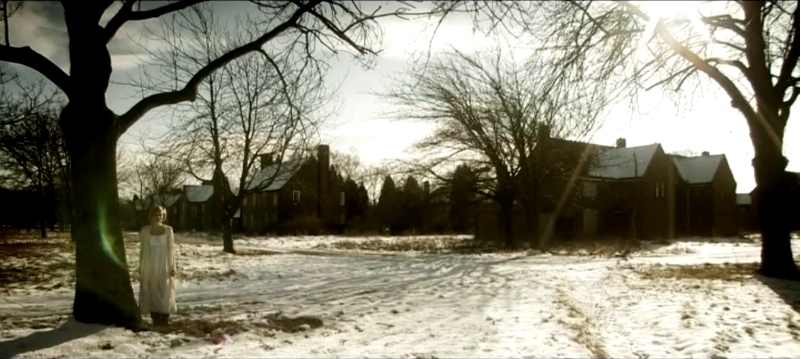

AS: It’s really a shame the situation with the film turned out like that, but on to the future – what can we expect from you next? Another novel? You’ve also written several short stories. Where can we find them? Are there any online?
ADB: I’ve got a few short stories in the draw, but they’ll probably never see the light of day. I used short stories as a way to experiment with style, genre and form. I think I learned a lot doing them, and I’ve had a couple published, but I’m not particularly proud of them. The only one I like is The Fin, my little homage to Jaws – one of my favourite movies. I put that one out as an ebook myself. Short stories are a very difficult thing to do well.
 As for the future. The Electric is out in Paperback in May through Boo Books, so I’ll be promoting that over the summer. Then I have a novella coming out in the autumn. I’m pretty proud of that one and I see it as a kind of bridge to the novel, or novels, I plan to write next, which I’ll be starting very soon. Well, I’ve already started really – at least, I’ve started it in my head.
As for the future. The Electric is out in Paperback in May through Boo Books, so I’ll be promoting that over the summer. Then I have a novella coming out in the autumn. I’m pretty proud of that one and I see it as a kind of bridge to the novel, or novels, I plan to write next, which I’ll be starting very soon. Well, I’ve already started really – at least, I’ve started it in my head.
There is also film stuff still rumbling in the background. I’ve co-written a couple of scripts with filmmaker David Bryant which we hope to get off the ground, but he’ll be directing, and also, I’ve been working with a company in the US to try and get a film version of The Electric into production. It’s been met with quite a bit of interest in Hollywood, by some quite incredible people, but we’ll see… I know how these things are. Creatively though, the main focus is working as a novelist. I see that as my life’s work now.
*
pre-order the new paperback of The Electric direct from Boo Books before 7th May and receive a signed copy







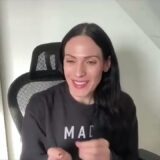
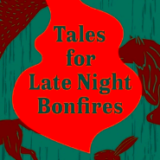
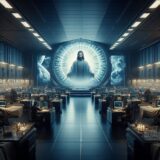
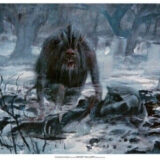
2 Comments